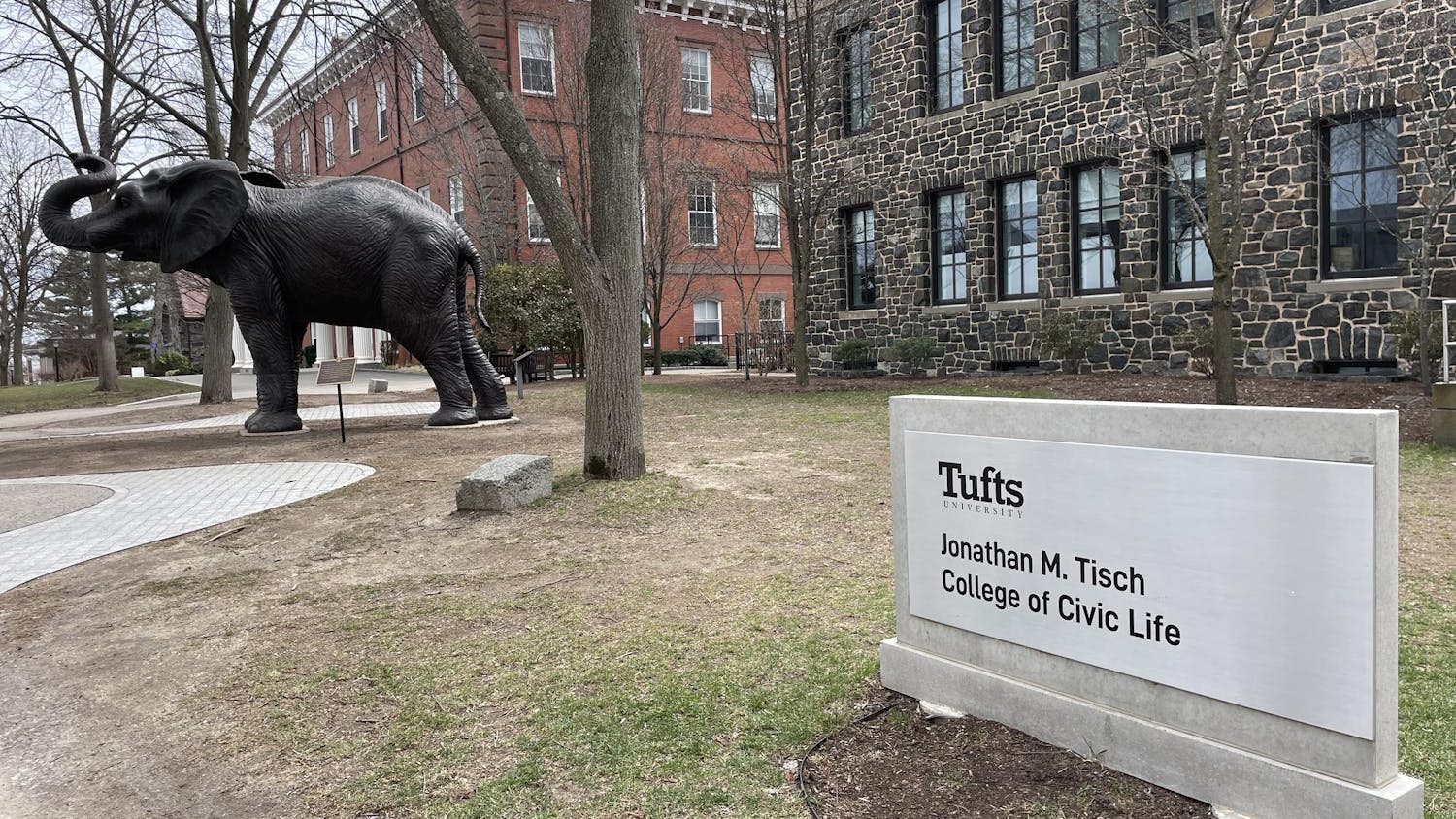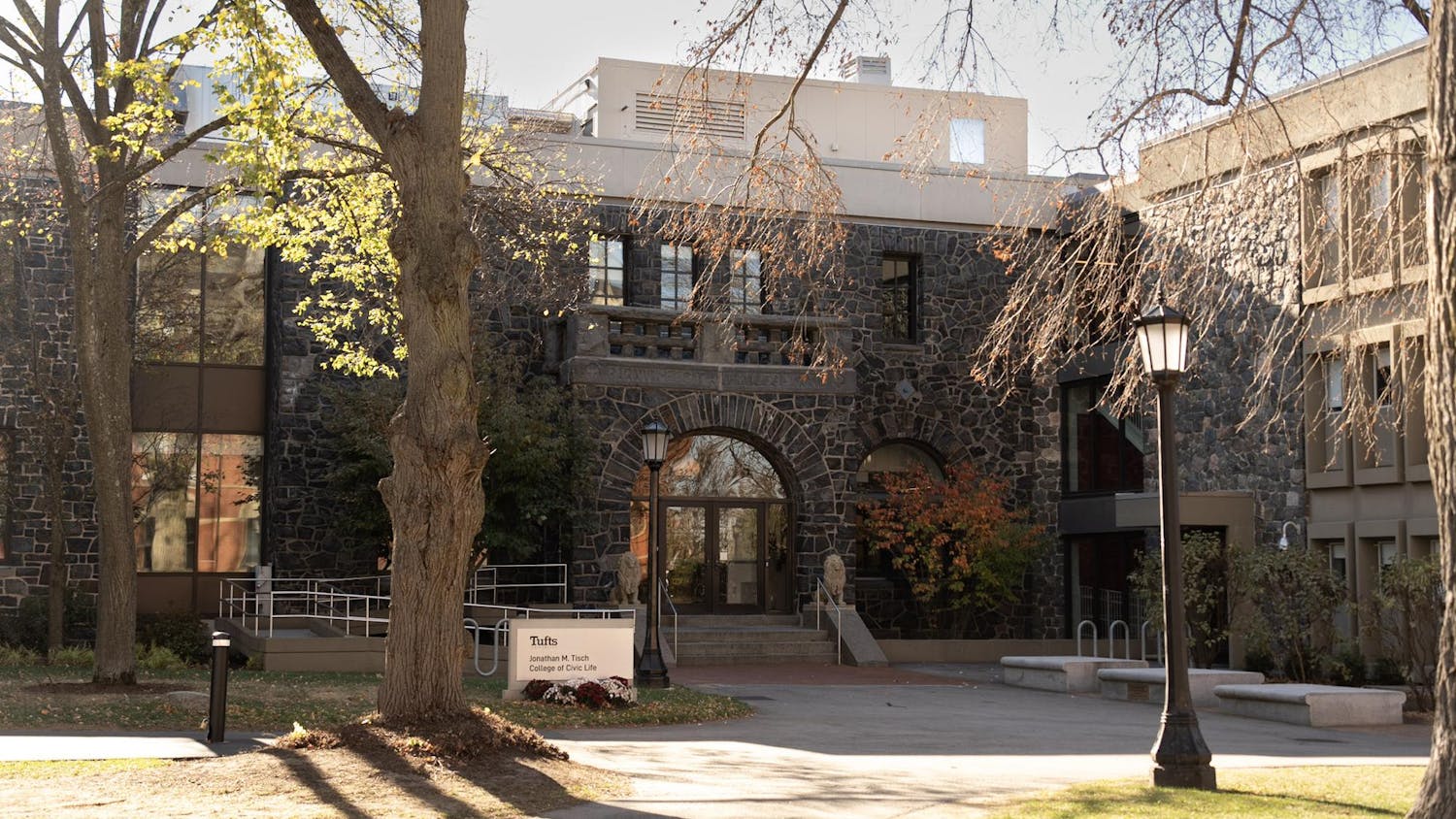President of the Boston City Council Michelle Wu spoke at the Jonathan M. Tisch College of Civic Life yesterday afternoon as part of the Civic Life Lunches initiative. During the lunchtime talk, Wu spoke briefly about her family, education and rise in politics before taking questions from the audience.
Wu is the first Asian-American woman to serve on the Boston City Council as well as its youngest current member. She worked in Boston City Hall under former Mayor Thomas Menino and was part of Senator Elizabeth Warren's (D-MA) campaign for Senate.
Despite this, Wu had no intention of serving in government when she was younger. As the daughter of Taiwanese immigrants, Wu said that stability was emphasized in her upbringing.
“In our family, politics wasn’t associated with great things,” Wu said. “It was about famine and political revolution and people getting in trouble and punishment and martial law. So my parents really wanted nothing else for me than to have a stable job that would pay a lot and not get me in trouble, and politics is really the opposite of all of those things, and so my journey happened kind of unexpectedly.”
Wu attended Harvard University as an undergraduate, where she spent her weekends volunteering and teaching citizenship classes to elderly immigrants in Chinatown. After graduation, she worked in consulting and was on track to go into business when her younger sister called her, saying, “You have to come home now.”
“When I got back to Chicago, we realized that my mom was in the midst of a mental breakdown. She had started hearing things that no one else was hearing and behaved very paranoid,” Wu said. “It felt like everything was spiraling out of control.”
Just out of college, Wu found herself handling multiple unexpected responsibilities. She was the primary caretaker for a mother suddenly struck with mental illness, the legal guardian for her two younger sisters and in charge of opening and running a family business to provide for her family.
As a result, she had to find appropriate health care for her mother, a good education for her sisters and business permits and licenses for the business. Wu credited these experiences with sparking her interest in government.
“I just became completely fed up with government,” Wu said. “Government was always in the way. Government was always trying to shut us down when all I was trying to do is help my family and in some ways create an environment for my community to be stronger. So I sort of vowed at that point that if I ever had the chance, I would try and do something about it one day.”
When it became apparent that her mother would need permanent, long-term care, Wu sold the business and brought her family to Boston, where she attended Harvard Law School and worked in Boston City Hall under Menino. She said that this work cemented her growing interest in politics.
“[I] really saw that actually, from the inside of government, you can change things so that government is responsive, receptive and actually listens to people,” Wu said.
By her third year in law school, Wu realized that government was a great place to make a difference, and an opportunity to bring change arose when Warren, a commercial and bankruptcy lawyer from Oklahoma and Wu's professor, announced that she was running for U.S. Senate.
Wu joined the Warren campaign with no political experience and started at the ground level, going from door to door and phonebanking. By the end, she had risen to the role of Constituency Director, reaching out to women, veterans, the LGBT community and communities of color, getting them to vote.
“I learned then that policy is important and having good people in government is important, but the politics really, really matters, too,” Wu said. “Because it’s only through changing who feels welcome coming out to vote, participating or sitting at decision-making tables that we are really going to change the dynamic of who’s plugged into policy.”
When the Warren campaign came to a successful end in 2012, Wu announced her candidacy for Boston City Councillor At-Large in December and went on to win the 2013 election. In 2016, she was elected president of the Boston City Council.
“It’s just been a dream, really,” Wu said. “City government is where you can get things done quickly, you can see your constituents face to face, you can be out in the community, and I think there’s no problem that Boston can’t take on and provide a model for.”
Throughout the talk, Wu stressed the importance of increasing participation in government and making way for the next generation of leaders. Wu praised several programs that aim to increase women or minority participation in government, including Emerge Massachusetts, which Wu graduated from in 2010.
In a later interview with the Daily, Wu called for an increase in civic engagement among college students.
“Figure out what motivates you most, whether it’s an issue or a community, and get involved now,” Wu told the Daily. “If we can maintain young people’s belief that government is a place where you can do good … and if we can really make government seem an attractive place for the millennial generation, I think we’ll be just fine.”
Boston City Council President talks politics at Civic Life Lunch






